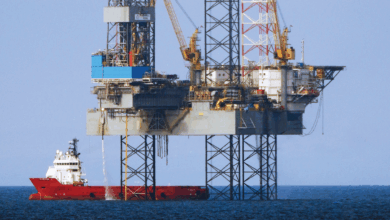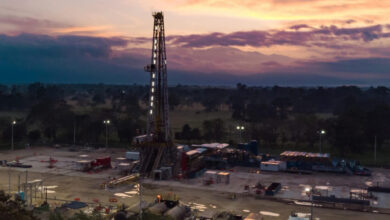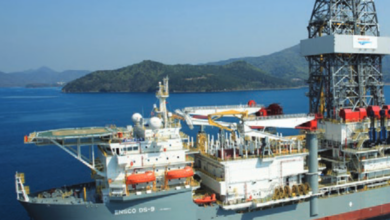Macaé: Brazil’s offshore oil hub puts infrastructure improvements on fast track
By Katie Mazerov, contributing editor

Situated on the scenic Brazilian coastline northeast of Rio de Janeiro, the port city of Macaé was once a quiet fishing village. Today, as the center of Brazil’s booming offshore oil industry, it is one of the country’s richest cities but also one grappling with significant growing pains. “We are in a new era of the oil industry in Brazil,” Macaé Mayor Dr Aluizio dos Santos Jr told DC in an interview. “Eighty-four percent of the oil produced in Brazil, as well as most of the gas, is related in some way to Macaé. Therefore, it is critically important that we work together to reform the infrastructure. Logistical and infrastructure challenges have a direct impact on Macaé’s capacity to maintain itself as a city that is attractive to companies and enterprise and to offer our people a good quality of life. Right now, we are trying to focus on initiating projects that address the most critical needs.”
Macaé’s population has more than doubled over the past decade to approximately 250,000, and its economy has grown by about 600% in the same period. The city also sees a daily influx of 50,000 people who work at the various oil industry companies that have established offices here. These include national oil company Petrobras, which has a large operations hub in Macaé, as well as several international offshore drilling contractors, including Ensco and Diamond Offshore, and a multitude of service companies. Other major operating companies have established satellite bases in the city as well. Many workers must travel on the only major highway serving the city, BR101, a single-lane highway constructed in 1970 that is now a toll road.
City leaders are engaged with oil and oil-related organizations, including IADC, in what Dr Aluizio calls a “synergistic effort” to develop the infrastructure, with multimillion dollar projects either under way or in the planning stages to improve roads, the airport, sanitation, security, hospitals and educational facilities. Improvements to BR101 are expected to be completed in 2017. Plans for a new port dedicated to offshore support vehicles, initiated 3 ½ years ago, were just approved, and discussions and public hearings regarding environmental licensing are under way. The port, if built, will be a new facility separate from the existing one.
With a $1 billion budget, a third of which comes from oil and gas royalties, the city already has launched massive public works projects, such as new sewage treatment facilities. “At the beginning of 2013, the city’s aging sanitation system had no treatment plants,” Dr Aluizio said. “Today we have completed 20% of our master plan, and by April we will be at 40%.” In June, the capacity for emergency and maternity care at the city’s public hospital will be doubled, and two private hospitals are under construction, with completion slated for mid-2015.
Another priority is education, with a focus on enhancing engineering and medical programs at the region’s three universities. The city is also investing in a comprehensive technological center that will provide education, training and skill development, as well as serve as an information center for the industry. Construction on the new facility will begin this year, with completion scheduled for 2015. “We feel this is important in demonstrating that we want to keep the oil industry here,” Dr Aluizio said.
A project that just recently started is a multimillion dollar overhaul of the city’s drainage system to alleviate the effects of periodic flooding that occurs in Macaé, which is situated below sea level. “City leaders and industry representatives are collaborating on the best ways to minimize the impact that is expected to occur during this huge construction project,” the mayor added. “Macaé needs the oil industry as much as the oil industry needs Macaé. We need the knowledge and expertise of the companies that are here now to help put these reforms in place so as to meet their needs and also attract new companies.”
From Brazil pre-salt to Venezuela heavy oil to Argentina shales, click here to read more about the industry in Latin America.




